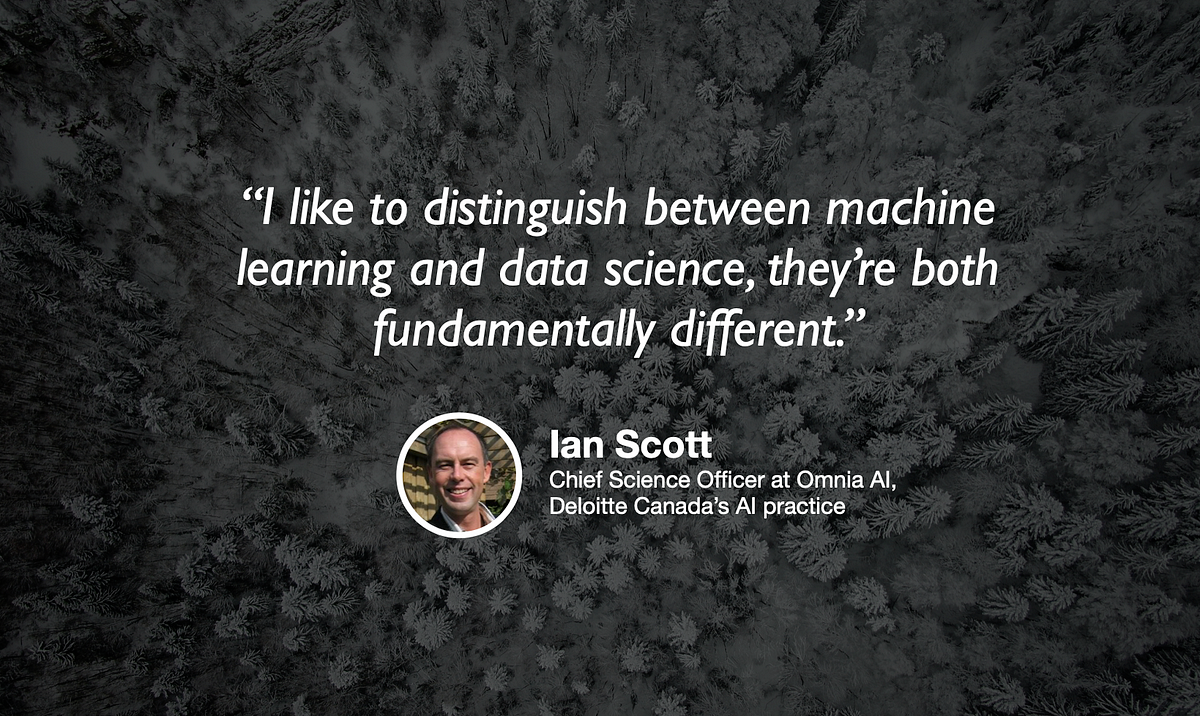Data science can look very different from one company to the next, and it’s generally difficult to get a consistent opinion on the question of what a data scientist really is.That’s why it’s so important to speak with data scientists who apply their craft at different organizations — from startups to enterprises. Getting exposure to the full spectrum of roles and responsibilities that data scientists are called on to execute is the only way to distill data science down to its essence.That’s why I wanted to chat with Ian Scott, Chief Science Officer at Deloitte Omnia, Deloitte’s AI practice. Ian was doing data science as far back as the late 1980s, when he was applying statistical modeling to data from experimental high energy physics as par of his PhD work at Harvard. Since then, he’s occupied strategic roles at a number of companies, most recently including Deloitte, where he leads significant machine learning and data science projects.Our conversation was focused on pinning down what exactly data science is, and how teams of data scientists can work together efficiently. Here were some of my favourite take-homes:
- Although most data scientists tend to use similar tools (Python, SQL, pandas, sklearn, jupyter notebooks, visualization tools, etc), it’s more helpful to define data science in terms of high-level responsibilities rather than tooling. Ian sees data scientists as people who deliver insights from data, and people who can communicate those insights to nontechnical audiences, rather than “people who can build a neural network” or “people who can train stacked XGBoost models”. Increasingly, soft skills are decisive differentiators if you’re looking to get hired.New data scientists with highly technical backgrounds often assume that data science problems are technical problems. Unfortunately, this is far from true: algorithms don’t solve data science problems alone — if they did, then data science would already be a fully automated profession. It takes business and product savvy to figure out how to engineer and select your features, so if you’re a technical person starting your career in analytics or machine learning, the highest leverage thing you can do is probably to dedicate serious time toward understanding how your company makes money, and how it delivers value to its customers.Consulting jobs involve moving from client to client faster than an in-house data scientist normally would. That means ramp-up speed is critically important, since you’ll need to develop context on different problems fast enough to be effective. Many consulting firms have evolved strategies to mitigate this problem, by ensuring that partners with deep domain knowledge are generally within reach to help with use cases that demand that kind of expertise.
#data-science #analytics #tds-podcast #machine-learning #consultancy
